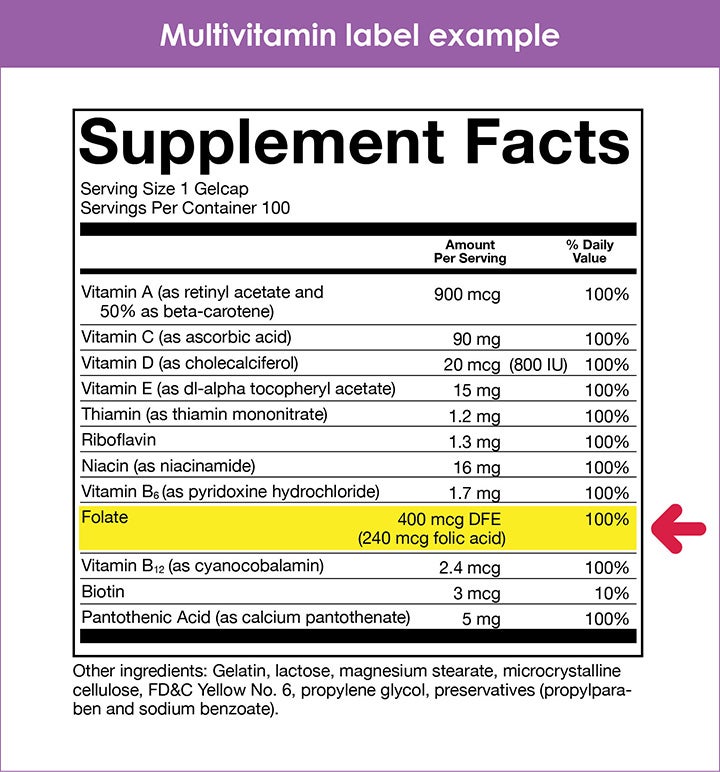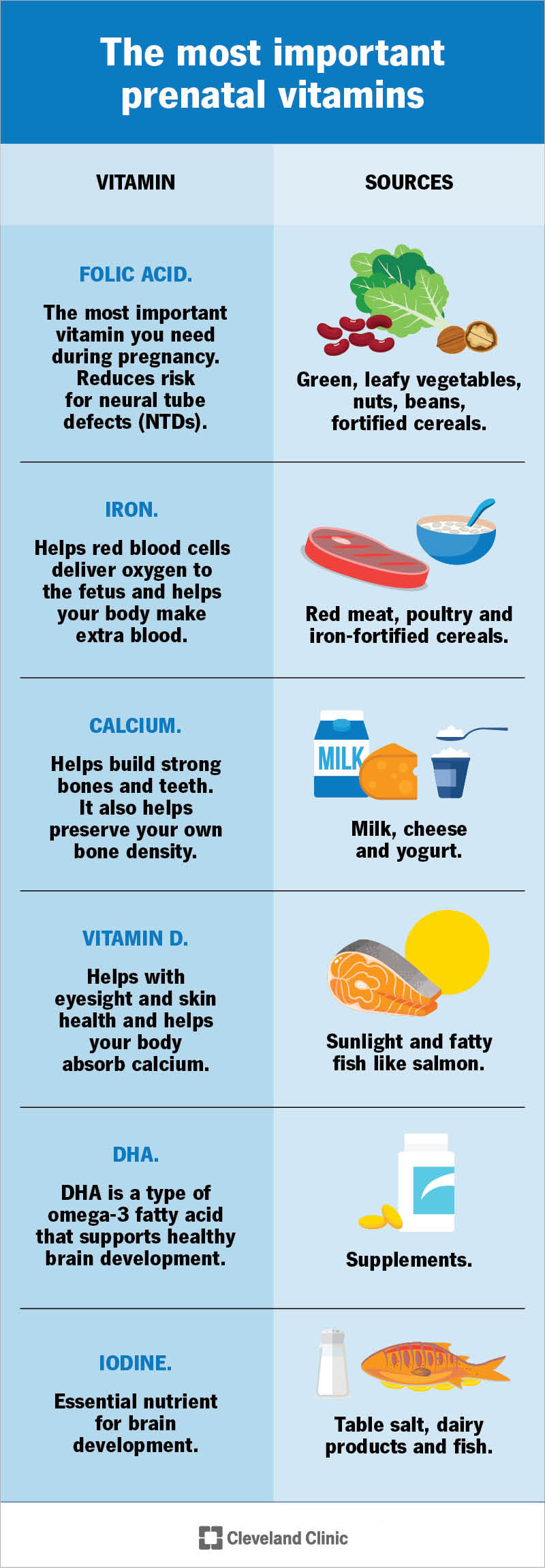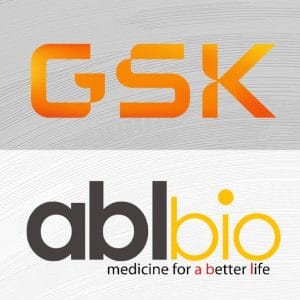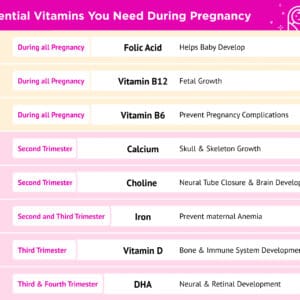Expecting a baby is an exciting time, and as an expectant mother, you want to ensure you’re providing the best possible start for your little one. A crucial aspect of prenatal care is taking the right supplements, with folic acid being a key ingredient. Prenatal vitamins with folic acid play a vital role in preventing birth defects and supporting fetal development. With numerous options available, it’s essential to choose a trustworthy supplement. This article will guide you through the importance of prenatal vitamins with folic acid and highlight reliable options to support a healthy pregnancy.

Understanding the Importance of Prenatal Vitamins with Folic Acid
Prenatal vitamins are dietary supplements designed for women who are pregnant or planning to become pregnant. These vitamins contain essential nutrients that support the health of both the mother and the developing fetus. One crucial component of prenatal vitamins is folic acid, a form of vitamin B9 that plays a vital role in preventing birth defects of the baby’s brain and spine.
The Role of Folic Acid in Pregnancy
Folic acid is critical during the early stages of pregnancy, as it helps prevent neural tube defects (NTDs) such as spina bifida and anencephaly. The neural tube forms very early in pregnancy (within the first month), often before many women know they are pregnant. Therefore, it is recommended that all women of childbearing age consume adequate amounts of folic acid daily.
| Nutrient | Importance | Recommended Daily Intake |
|---|---|---|
| Folic Acid | Prevents neural tube defects | 600-800 mcg |
| Iron | Supports the mother’s increased blood volume and the baby’s growth | 27 mg |
| Calcium | Essential for the baby’s bone development | 1,000 mg |
Key Ingredients to Look for in Prenatal Vitamins
When selecting a prenatal vitamin, it’s essential to look for a product that contains a broad spectrum of nutrients. In addition to folic acid, other critical ingredients include iron, calcium, and omega-3 fatty acids. These nutrients support various aspects of fetal development and maternal health.
Benefits of Taking Prenatal Vitamins with Folic Acid
The benefits of prenatal vitamins with folic acid are multifaceted. They not only help prevent birth defects but also support the overall health and well-being of the mother and fetus. These vitamins can help fill any nutritional gaps in the mother’s diet, ensuring that both she and her baby receive the necessary nutrients for optimal health.
Choosing the Right Prenatal Vitamin
With numerous prenatal vitamins available, selecting the right one can be challenging. It’s crucial to choose a vitamin that contains the recommended amount of folic acid (600-800 mcg) and other essential nutrients. Additionally, consider factors such as the manufacturer’s reputation, the presence of any allergens, and the vitamin’s form (e.g., tablet, capsule, or gummy).
| Brand | Folic Acid Content | Other Key Ingredients |
|---|---|---|
| Brand A | 800 mcg | Iron, Calcium, Omega-3 fatty acids |
| Brand B | 600 mcg | Iron, Calcium, DHA |
Potential Side Effects and Interactions
While generally safe, prenatal vitamins can cause side effects in some women, such as nausea or constipation. It’s also important to be aware of potential interactions with other medications. Always consult with a healthcare provider before starting any supplement regimen, especially if you have any pre-existing health conditions or take other medications regularly.
Which folic acid is best for pre-pregnancy?

When considering pre-pregnancy, the type of folic acid that is best is a crucial question. Folic acid is a synthetic form of folate, a B vitamin that is essential for numerous bodily functions, particularly during pregnancy. It plays a critical role in preventing neural tube defects (NTDs) in the developing fetus.
Folic Acid Forms and Their Importance
The most commonly recommended form of folic acid for pre-pregnancy is the standard synthetic folic acid found in most supplements and fortified foods. This form is effective because it is easily absorbed by the body and has been proven to significantly reduce the risk of NTDs. The key is to start taking folic acid before conception and continue through the early stages of pregnancy. Key benefits include:
- Prevention of Neural Tube Defects: Folic acid helps prevent defects of the brain and spine.
- Easy Absorption: Synthetic folic acid is efficiently absorbed by the body.
- Wide Availability: Found in many supplements and fortified foods.
Recommended Dosage for Pre-Pregnancy
The recommended dosage of folic acid for women planning to become pregnant is typically 400 to 800 micrograms (mcg) per day. This dosage has been shown to be effective in preventing NTDs. It’s advisable to start this regimen at least one month before conception and continue through the first trimester of pregnancy. Important considerations include:
- Timing of Supplementation: Start at least one month before conception.
- Dosage Range: 400 to 800 mcg per day is the recommended range.
- Continuation During Pregnancy: Continue supplementation through the first trimester.
Dietary Sources and Supplements
While supplements are a reliable way to ensure adequate folic acid intake, dietary sources are also important. Foods rich in folate include leafy greens like spinach, legumes, and citrus fruits. However, the folate in these foods is not always as easily absorbed as synthetic folic acid. Combining dietary sources with supplements can help ensure that women have adequate levels of folic acid. Considerations include:
- Dietary Folate: Include folate-rich foods in your diet.
- Supplementation: Use supplements to ensure adequate intake.
- Fortified Foods: Many cereals and breads are fortified with folic acid.
Is it safe to take folic acid with prenatal vitamins?
It is generally considered safe to take folic acid with prenatal vitamins, as folic acid is often a component of prenatal vitamins. Prenatal vitamins are dietary supplements designed to provide essential nutrients to pregnant women or those planning to become pregnant. Folic acid is a crucial nutrient that prevents birth defects of the baby’s brain and spine. Taking folic acid with prenatal vitamins can help ensure that the pregnant woman is getting enough of this vital nutrient.
Benefits of Taking Folic Acid with Prenatal Vitamins
Taking folic acid with prenatal vitamins offers several benefits, primarily related to preventing birth defects and supporting the overall health of the mother and fetus. Some key advantages include:
- The prevention of neural tube defects (NTDs) such as spina bifida and anencephaly, which occur when the neural tube does not close properly.
- Supporting fetal development by ensuring adequate folate levels, which are crucial for the production of red blood cells and the prevention of anemia in the mother.
- Helping to manage homocysteine levels, as elevated homocysteine is associated with pregnancy complications.
Potential Interactions and Considerations
While generally safe, taking folic acid with prenatal vitamins requires consideration of potential interactions and the overall dietary intake of the pregnant woman. Key considerations include:
- The risk of masking a vitamin B12 deficiency, as high levels of folic acid can correct the megaloblastic anemia caused by vitamin B12 deficiency but will not prevent the neurological damage caused by the deficiency.
- Ensuring that the total intake of folic acid does not exceed the recommended upper limit, as excessive intake may have adverse effects.
- Being aware of other ingredients in prenatal vitamins and potential interactions with other medications or supplements.
Nutritional Balance and Recommendations
Achieving a balance between folic acid and other nutrients is crucial for pregnant women. Recommendations include:
- Consuming a balanced diet rich in whole foods, fruits, vegetables, and whole grains to support overall nutritional needs.
- Following the recommended dosage of prenatal vitamins and folic acid supplements as advised by a healthcare provider.
- Being mindful of food fortification with folic acid and adjusting supplement intake accordingly to avoid excessive intake.
Does Nature's Truth Ultra prenatal have folic acid?

The answer is yes, Nature’s Truth Ultra prenatal supplements contain folic acid, which is a crucial nutrient for pregnant women. Folic acid plays a vital role in preventing birth defects of the brain and spine.
Folic Acid Importance in Prenatal Care
Folic acid is essential for the healthy development of a fetus during pregnancy. It helps prevent neural tube defects, such as spina bifida and anencephaly. The recommended daily intake of folic acid for pregnant women is 600-800 mcg. Here are some key points about folic acid in prenatal care:
- Fetal development: Folic acid supports the growth and development of the fetus.
- Prevention of birth defects: Folic acid helps prevent neural tube defects and other birth defects.
- Recommended daily intake: Pregnant women should consume 600-800 mcg of folic acid daily.
Nature’s Truth Ultra Prenatal Supplement Facts
Nature’s Truth Ultra prenatal supplements are designed to provide essential nutrients for pregnant women. In addition to folic acid, these supplements contain other vital nutrients like iron, calcium, and vitamin D. Here are some key facts about Nature’s Truth Ultra prenatal supplements:
- Nutrient-rich formula: The supplement contains a blend of essential nutrients for fetal development.
- Folic acid content: The supplement contains a significant amount of folic acid to support fetal development.
- Additional nutrients: The supplement includes other vital nutrients like iron, calcium, and vitamin D.
Benefits of Folic Acid in Prenatal Supplements
The inclusion of folic acid in prenatal supplements like Nature’s Truth Ultra prenatal offers numerous benefits. Folic acid helps prevent birth defects, supports fetal development, and promotes overall health during pregnancy. Here are some benefits of folic acid in prenatal supplements:
- Prevention of birth defects: Folic acid helps prevent neural tube defects and other birth defects.
- Fetal development: Folic acid supports the growth and development of the fetus.
- Maternal health: Folic acid promotes overall health and well-being during pregnancy.
Is 800 mcg folic acid too much in a prenatal?

The recommended daily intake of folic acid for pregnant women is a crucial aspect of prenatal care, as it prevents birth defects of the baby’s brain and spine. The standard recommendation is typically around 600-800 mcg per day. However, the optimal dosage can vary based on individual health needs and risk factors.
Folic Acid Recommendations for Pregnant Women
The amount of folic acid in prenatal vitamins can vary, but 800 mcg is within the recommended range for many pregnant women, especially those at higher risk for folate deficiency or with a history of having a child with a neural tube defect. Pregnant women with certain medical conditions or taking specific medications may require adjusted folic acid intake.
- Folic acid supplementation is crucial before and during early pregnancy.
- The neural tube forms early in pregnancy, often before many women know they are pregnant.
- Adequate folate levels prevent neural tube defects such as spina bifida.
Potential Risks of High Folic Acid Intake
While 800 mcg is generally considered safe and is within the recommended dietary allowance for pregnant women, excessively high doses of folic acid can mask vitamin B12 deficiency symptoms, potentially leading to neurological problems if not addressed. High intake is usually associated with supplements rather than diet.
- High doses of folic acid can cause gastrointestinal side effects in some individuals.
- Interactions with medications are possible, particularly with certain anticonvulsants.
- There’s a need for individualized prenatal care to determine the right folic acid dose.
Importance of Personalized Prenatal Care
The specific needs of each pregnant woman can vary significantly, making personalized prenatal care essential. Factors such as diet, pre-existing health conditions, and previous pregnancy outcomes influence the ideal folic acid dosage.
- Nutritional counseling is an integral part of prenatal care to ensure adequate folate intake.
- Women with a history of neural tube defects in previous pregnancies may require higher doses.
- Healthcare provider guidance is critical to tailor the prenatal vitamin and supplement regimen.
Frequently Asked Questions
What are the key benefits of taking Prenatal Vitamins with Folic Acid during pregnancy?
Taking Prenatal Vitamins with Folic Acid during pregnancy is crucial as it provides the necessary nutrients and vitamins that support the overall health and development of the baby. Folic Acid is particularly important as it helps prevent birth defects of the baby’s brain and spine. Additionally, these vitamins support the mother’s health by filling any nutritional gaps in their diet, ensuring that both the mother and the baby receive the necessary vitamins and minerals for optimal health.
How does Folic Acid in Prenatal Vitamins prevent birth defects?
Folic Acid plays a critical role in preventing neural tube defects (NTDs), which are birth defects of the brain and spine. When taken before and during early pregnancy, Folic Acid helps in the proper closure of the neural tube, which forms the baby’s brain and spinal cord. This is a crucial period in pregnancy, often before many women know they are pregnant, making it essential to start taking Prenatal Vitamins with Folic Acid as soon as pregnancy is planned or confirmed.
Are there any specific Prenatal Vitamins with Folic Acid that are recommended over others?
When choosing Prenatal Vitamins with Folic Acid, it’s essential to look for products that contain the recommended daily intake of Folic Acid (usually 400 to 800 mcg) and other crucial prenatal nutrients like iron, calcium, and omega-3 fatty acids. The best Prenatal Vitamins are those that are formulated to support the health of both the mother and the developing fetus, without excessive amounts of any vitamin or mineral. Always consult with a healthcare provider to determine the most suitable Prenatal Vitamin based on individual needs.
Can I get enough Folic Acid and other necessary nutrients from my diet alone?
While a well-balanced diet is essential for overall health, it can be challenging to get enough Folic Acid and other necessary nutrients from food alone, especially during pregnancy when the body’s demand for these nutrients increases. Foods rich in Folate (the natural form of Folic Acid) include leafy greens, legumes, and citrus fruits. However, due to the critical role of Folic Acid in preventing birth defects and the increased nutritional demands during pregnancy, taking Prenatal Vitamins with Folic Acid is often recommended to supplement the diet and ensure adequate intake of essential nutrients.















